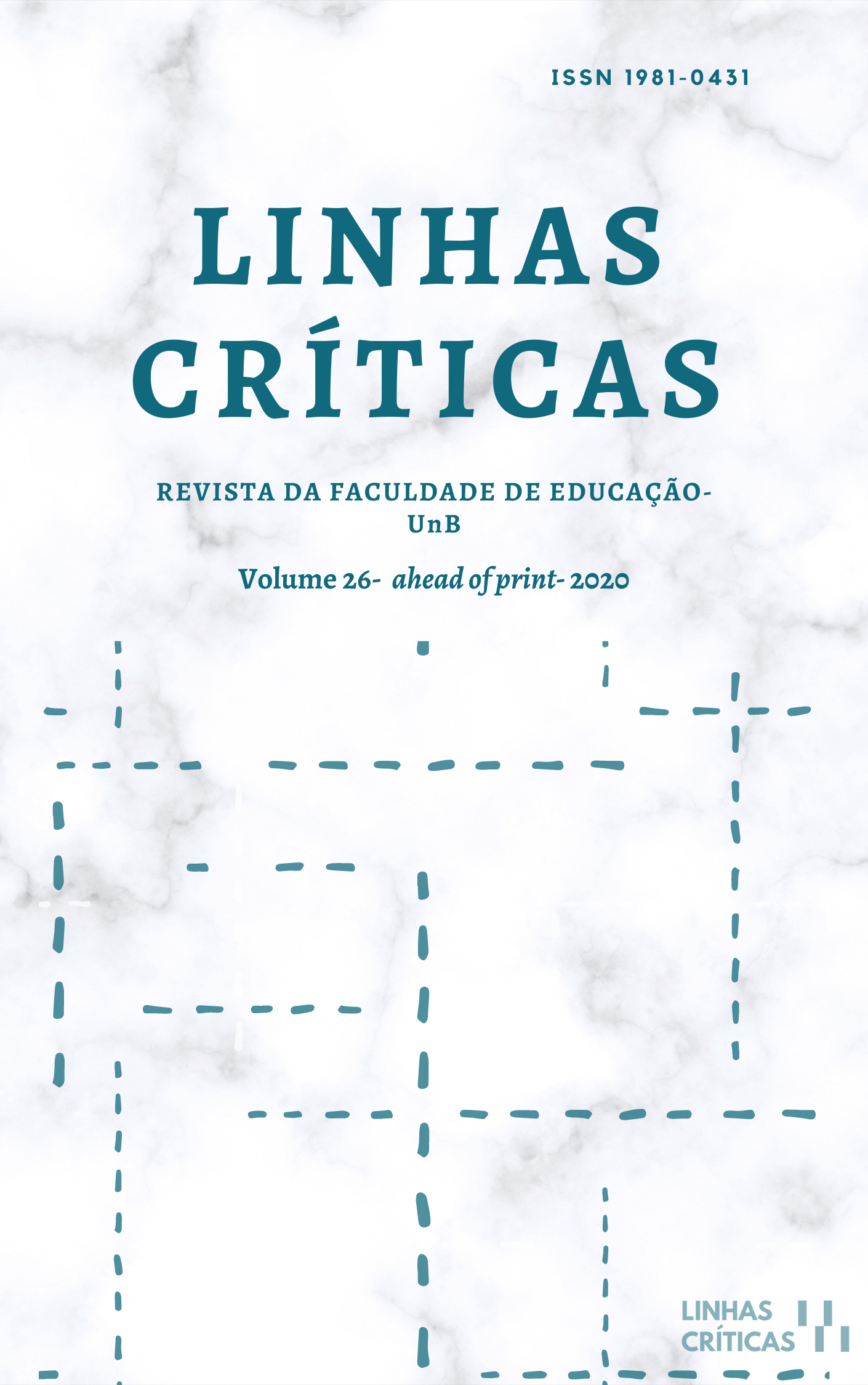Platform studies
dimensions and problems of the phenomenon in education
DOI:
https://doi.org/10.26512/lc.v26.2020.28150Keywords:
Platforms, Social media, Privacy, Datification, EducationAbstract
The exploratory study aimed to analyze four platforms equipped with automated mechanisms for collecting data on user behavior and that are used increasingly in the didactic-pedagogical activities of schools and universities. The data collected by these platforms cover student performance in study activities and performance in tests, for alleged purposes of improving teaching, teaching performance and school management and are referenced by pre-established standards of efficiency and quality. The analysis demonstrated that these platforms operate inserted in the phenomena of datafication, commodification and surveillance capitalism. Its use expands to the detriment of a better understanding of its impacts on educational practices, in particular learning and the nature of public education.
Downloads
References
Altschool. (s.d.). About us. https://www.altschool.com/about-us
Classdojo. (s.d.). Sobre nós. https://www.classdojo.com/pt-br/about
Coursera. (s.d.). About us. https://www.coursera.org/about/privacy
D'Andrea, C. (2019). Das plataformas aos métodos digitais: percursos e percalços. [Palestra proferida na Faculdade de Comunicação da Universidade Federal da Bahia, em Salvador (BA)]. https://www.facebook.com/lab4O4/videos/2193643010731266
Davis, C., Deil-Amen, R., & Rios-Aguilar, C. (2012). Social Media in Higher Education: A literature review and research directions. https://works.bepress.com/hfdavis/2
Gikas, J., & Grant, M. (2013). Mobile computing devices in higher education: Student perspectives on learning with cellphones, smartphones and social media. The Internet and Higher Education, 19,18-26. https://doi.org/10.1016/j.iheduc.2013.06.002
Gil, A. C. (2008). Métodos e técnicas de pesquisa social. Atlas.
Gillespie, T. (2010). The politics of 'platforms'. New Media & Society, 3(1), 347–364. https://doi.org/10.1177%2F1461444809342738
Helmond, A. (2015). The platformization of the web: Making web data platform ready. Social Media + Society, 5. https://doi.org/10.1177%2F2056305115603080
Junco, R. (2012). The relationship between frequency of Facebook use, participation in Facebook activities, and student engagement. Computers & Education, 58(1), 162-171. https://doi.org/10.1016/j.compedu.2011.08.004
Mao, J. (2014). Social media for learning: A mixed methods study on high school students’ technology affordances and perspectives. Computers and Human Behavior, 33(2), 213-223. https://doi.org/10.1016/j.chb.2014.01.002
Marconi, M. A., & Lakatos, E. M. (2003). Fundamentos da metodologia científica. Atlas.
Murugesan, S. (2007). Understanding Web 2.0. IT Professional, 9(4), 34-41. https://doi.org/10.1109/MITP.2007.78
Van Dijck, J. (2013). The culture of connectivity: a critical history of social media. Oxford University Press.
Van Dijck, J., & Poell, T. (2018). Social media platforms and education. In J. Burgess, A. Marwick, & T. Poell (Eds.), The SAGE Handbook of Social Media. SAGE.
Van Dijck, J., Poell, T., & De Wall, M. (2018). The platform society. Oxford University Press.
Williamson, B. (2017). Learning in the 'platform society': disassembling an educational data assemblage. Research in Education, 98(1), 59-82. https://doi.org/10.1177%2F0034523717723389
Yujie, X. (2019). Camera Above the Classroom. Chinese schools are using facial recognition on students. But should they? Sixty Tone Magazine. https://www.sixthtone.com/news/1003759/camera-above-the-classroom. Recuperado em 08 mai. 2019.
Zuboff, S. (2019). The age of surveillance capitalism. PublicAffairs.
Published
How to Cite
Issue
Section
License
Copyright (c) 2020 Eduardo Santos Junqueira Rodrigues

This work is licensed under a Creative Commons Attribution 4.0 International License.
Authors who publish in this journal agree to the following terms:
-Authors maintains the copyright and grants the journal the right of first publication, the work being simultaneously licensed under the Creative Commons Attribution License which allows the sharing of the work with recognition of the authorship of the work and initial publication in this journal.
- Authors are authorized to enter into additional contracts separately, for non-exclusive distribution of the version of the work published in this journal (eg publish in institutional repository or as a book chapter), with acknowledgment of authorship and initial publication in this journal.
-Authorers are allowed and encouraged to publish and distribute their work online (eg in institutional repositories or on their personal page) at any point before or during the editorial process, as this can generate productive changes as well as increase the impact and the citation of published work (See The Effect of Free Access).



